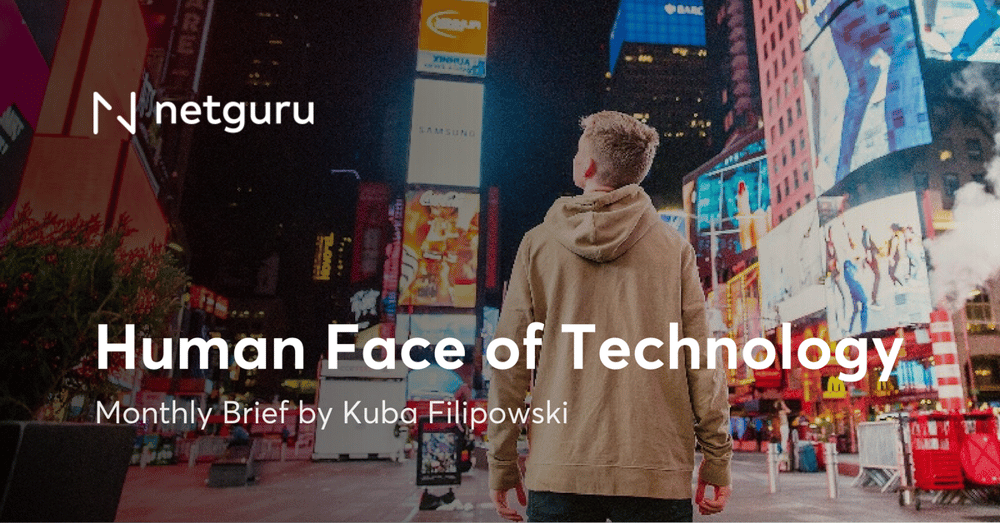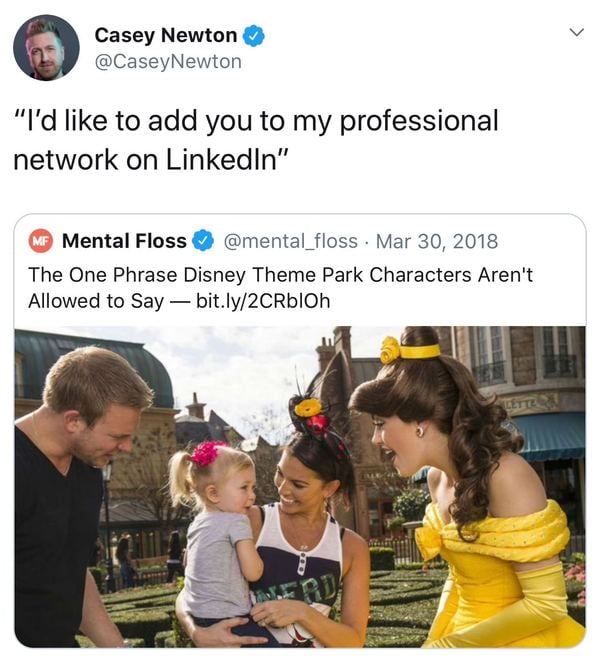🔥 Human face of technology #20

🌉 The art market is becoming addicted to Instagram.
Social media has become the main way we discover art. Our Instagram feeds have replaced galleries, museums, and albums.
Whether you’re considered a good artist is more and more determined not by which gallery is displaying your work, but how many followers you have on Instagram.
Which is why more and more artists are creating things to pander to Instagram users - this is what makes their paintings sell. If the picture you painted is good, you’ll get a lot of likes.
Artists who want to be visible on Instagram also have to consider the terms and conditions - no nudity, avoid controversy. This is the opposite of what went on during the television era when controversy paid. Today, posting nudes can get you banned.
The same is true about exhibitions: more and more of them are created with Instagram in mind. An exhibition has a goal, a KPI - get visitors to take pictures and put them on Instagram. This will bring in more people.
🐄 Apple is milking its user base through services. They did a whole event about them in March
An Apple News subscription for magazines seems cool, but I won’t be able to use it because, for some reason, Apple News is not available in Poland.
Arcade is a great idea in a world with an oversupply of games. It’s hard to know which paid iPhone games are good, so being able to download a game and play it without paying looks like a fair deal. And makes a lot more sense to a casual gamer than Google Stadia.
The Apple Card - looks fine as a safety measure, a virtual card that’s not tied to your main checking account is a good way to get more peace of mind during transactions. It will probably take at least a few years before it comes to Poland, so I’m not holding my breath. I use Apple Pay every day, it’s a great service. Whether it has an Apple Card or a mBank Card inside doesn’t really matter to me.
As far as Apple TV+ is concerned, we know very little - only that they’ve contracted a bunch of popular artists and gave them money to make content.
If I understand the strategy correctly, the idea is to build a base of content available on a subscription basis, use it to attract users to the app, and then become an intermediary for subscriptions to other paid “channels” (such as Netflix or Disney). Amazon Prime Channels and Roku have similar business models.
In the future, such aggregators will be able to package their offers - users won’t want to have 10 different subscriptions costing them 10 dollars each; they’d rather get a 50 dollar package with access to 10 channels (10 “Netflixes”).
This makes the aggregator more important than any single channel because it controls the user relationship. The same is true about Apple News magazine subscriptions, but TV+ operates in a more valuable, growing market with existing winners (Netflix) and other large players transforming their models into streaming.
Apple has a solid arsenal of weapons - they control the default settings on iPhones and iPads and are building up their smart TV app portfolio. What they don’t have is unique content to attract customers with. Another problem which Apple is facing is the fact that their services typically win by the virtue of being the platform defaults on their great hardware, rather than being superior to the competition’s offerings.
🤦♀️ Zuckerberg is asking for social media regulation
There are four areas which Zuckerberg thinks should be regulated: harmful content, election protection, data protection, and data portability.
From his perspective, it would probably be great if the state regulated these things - it would be enough to follow the regulations to keep your hands clean.
Regulations are also a great moat against competition. Social media startups can’t afford to implement sophisticated tools, follow complicated procedures, and hire enough people to moderate content and take responsibility for the aforementioned areas.
If there is no regulation, Facebook gets the flak and their competitors can just keep on doing the things that Facebook is criticized for because Facebook keeps the attention away from them.
Zuckerberg knows this - when he’s asking for regulation, he’s actually asking for his dominant position to be entrenched. It’s a prudent move, a smart play in his game with legislators and the public, which will probably get him what he wants.
🍔 McDonald’s bought a company which makes content personalization software
McDonald’s serves 68 million customers every day, with most of them using the “drive-thru”. More and more sales are completed using self-service touchscreen kiosks. This is a good place to give recommendations.
The CEO of McDonald’s says that the company is undergoing a transformation from mass marketing to mass personalization. One example of such personalization could be recommending meal deals based on license plates. Another example showing that every company eventually becomes a software company.
💰A lot of companies are having their IPOs in 2019
Lyft is already being traded, Pinterest and Zoom have filed their papers, Uber and Airbnb are planning to file theirs.
This means that there will be a lot of new millionaires in San Francisco. What’s the common denominator of these IPOs? All of these companies, except for Zoom, are unprofitable.
Most were started 10-12 years ago and remained unprofitable since (Airbnb 2007, Uber 2009, Lyft 2007, Pinterest 2009).
All of them grew very quickly; the biggest of them (Airbnb, Uber, Lyft) defined the so-called sharing economy, which in practice is a creative approach to regulations in cities and stretching the limits of labor law.
🐒 Google Stadia looks like a great idea, but I have a few questions
Stadia is another attempt to move heavy computing to remote servers and give gamers the opportunity to play AAA games in the browser.
Sounds like a cool technology, but is there a market for this?
How little latency does there need to be for people to give up their expensive gaming computers and start playing in the browser?
Would gamers rather rent or collect games?
What if a game I rented stops being available?
Should I compare the cost of access to the price of a game plus the required hardware or just the game?
The sunk cost fallacy seems to suggest that, when thinking about buying entertainment, gamers don’t typically consider the money they’ve spent buying an expensive computer. They compare the price of a subscription to the price of a “boxed” product.
Do casual gamers play AAA games? Maybe. I, as a less than the casual player, would like to play around with Stadia, but I don’t see myself getting hooked and finding a justification to pay for a subscription to games which I don’t have the time to play.
🌤 Cloud software has won the B2B market
Ten years ago there wasn’t a single private cloud software company worth over $1B. Today there’s at least 55 of them.
The cloud has changed the way we do business.
At Netguru we’ve been using cloud apps since the very beginning: we communicate through Slack, we create our documents and spreadsheets in Google Drive, manage our projects in Jira, and keep our client, partner, employee, and financial data in Salesforce.
According to Bessemer Venture Partners, the cloud market is worth over $700B, and 2018 was a record year for M&A, IPO, and VC transaction values.

.jpg?width=50&height=50&name=Kuba%201%20k%20(1).jpg)
.jpg?width=240&height=240&name=Kuba%201%20k%20(1).jpg)


